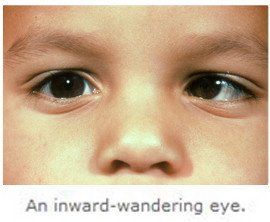
Here are some common conditions
Many eye diseases have no early symptoms. They may be painless, and you may see no change in your vision until the disease has become quite advanced.
The single best way to protect your vision is through regular professional eye examinations. Of course, between examinations, if you notice a change in your vision – or you think your eye may be injured in any way – contact your eye care professional immediately.
Age-Related Macular Degeneration
Age-related macular degeneration (AMD) is the physical disturbance of the center of the retina called the macula.
Bulging Eyes
Bulging eyes, or proptosis, occurs when one or both eyes protrude from the eye sockets due to space taking lesions such as swelling of the muscles, fat, and tissue behind the eye.
Cataracts
Cataracts are a degenerative form of eye disease in which the lens gradually becomes opaque and vision mists over.
Glaucoma
Glaucoma occurs when a build-up of fluid in the eye creates pressure, damaging the optic nerve.
Lazy Eye
Commonly known as lazy eye, amblyopia is poor vision in an eye that does not receive adequate use during early childhood.
Ocular Hypertension
Ocular hypertension is an increase in pressure in the eye that is above the range considered normal.
Crossed Eyes (Strabismus)
Crossed eyes (or strabismus) occur when a person's eyes are not able to align on the same point at the same time, and appear to be misaligned or pointed in different directions.
Diabetic Macular Edema
Diabetic Macular Edema, DME, is caused by fluid accumulation in the macula. Patients with DME typically experience blurred vision which can be severe.
Eye Floaters and Eye Flashes
Floaters are small specks or clouds that move across your field of vision—especially when you are looking at a bright, plain background, like a blank wall or a cloudless blue sky.
Keratoconus
When the cornea in the front of the eye, which normally is round, becomes thin and cone shaped.
Low Vision
Whenever ordinary glasses or contact lenses don't produce clear vision, you are considered to have low vision.
Retinal Detachment
When the retina detaches, light sensitive membrane in the back of the eye becomes separated from the nerve tissue and blood supply underneath it.


